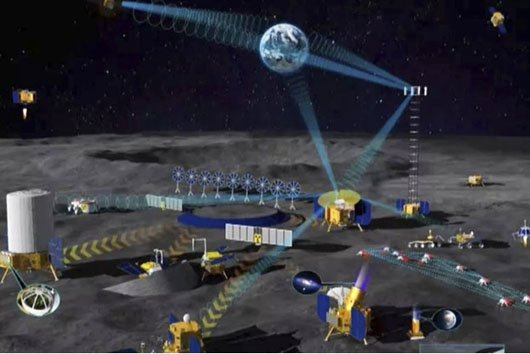Special to CosmicTribune.com, May 2, 2023
By Richard Fisher
China is escalating its effort to bring a New Cold War divide to the moon by creating an organization with members, the International Lunar Research Station Cooperation Organization (ILRSCO), as part of the 2001 China-Russia International Lunar Research Station (ILRS).
China’s goal is to trump the United States’ 23-member Artemis Accords which is just an agreement on principles for behavior on the moon.

The distinction is crucial.
As an organization, ILRSCO will have a leader, most certainly China, and have a bureaucracy, again most likely in China, and though agreements on principles and then planning, led by China, will implement dual use scientific and commercial activities on the moon, largely funded by China but all approved by ILRSCO members.
China’s Wu Weiren, Chief Designer of China’s Lunar Exploration Program and director of the China Deep Space Exploration Laboratory (DSEL) in Hefei, China, made the announcement of the formation of the ILRSCO on April 25 at DSEL’s Conference on Deep Space Exploration, also in Hefei.
That day Wu told Chinese state television, “We hope it [ILRSCO] can become a major scientific program that links multiple countries, international organizations, institutions and scientists together. China is committed to making greater contributions to humanity, this is our main starting point.”
Unfortunately, when China creates and then leads broad international coalitions or organizations, Beijing tends to restrict their membership to other authoritarian nations, or those that can be expected to oppose or show independence from the United States, and then ply such organizations with anti-democratic preferences and agendas.
In addition, Chinese created and led coalitions and organizations have a tendency to stress military cooperation, again at China’s direction to benefit the security of authoritarian members and diminish the security of democracies.
Full Text . . . . Current Edition . . . . Subscription Information

You must be logged in to post a comment Login